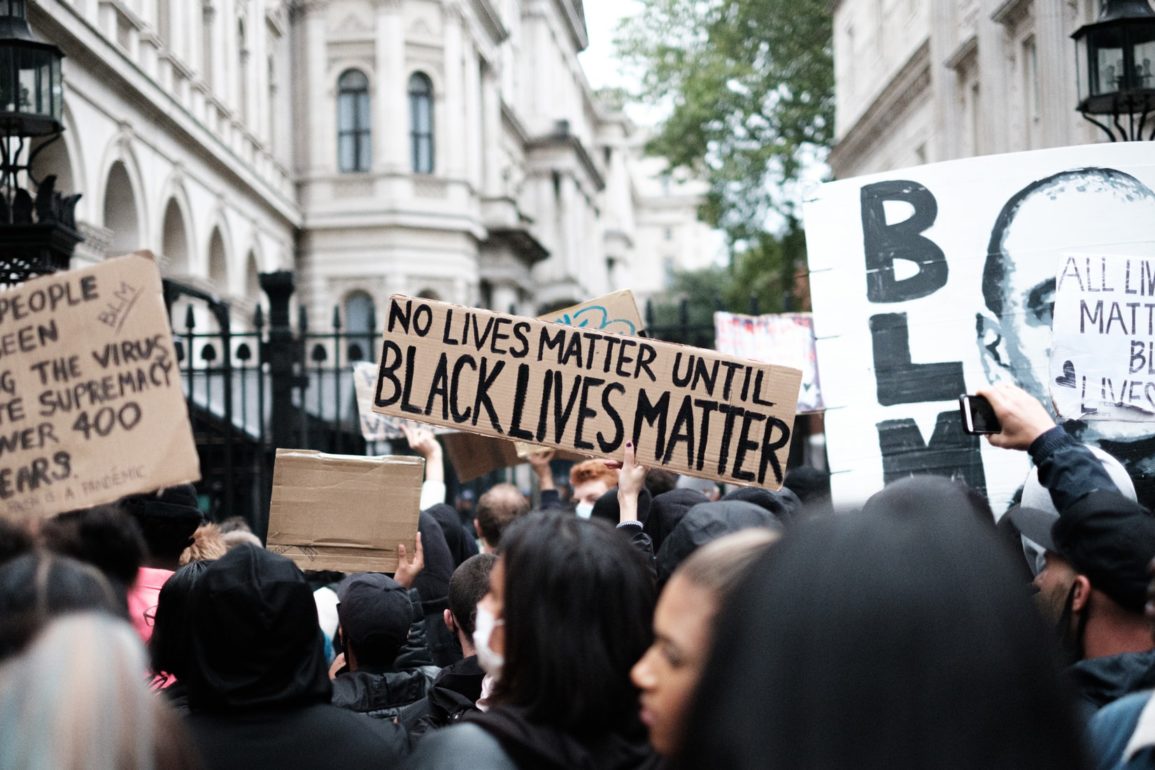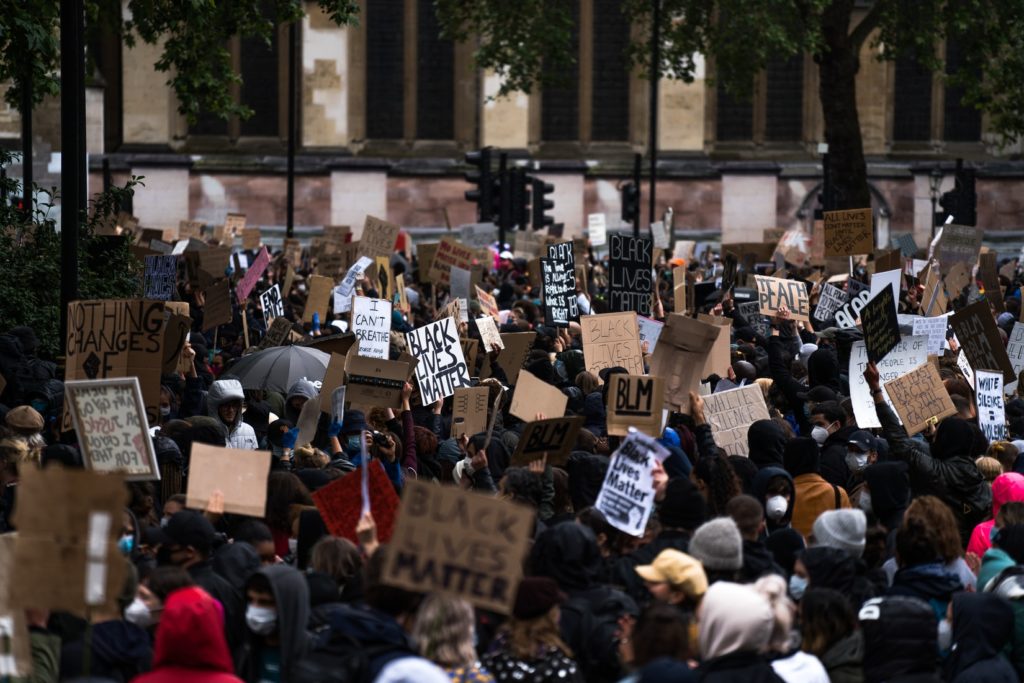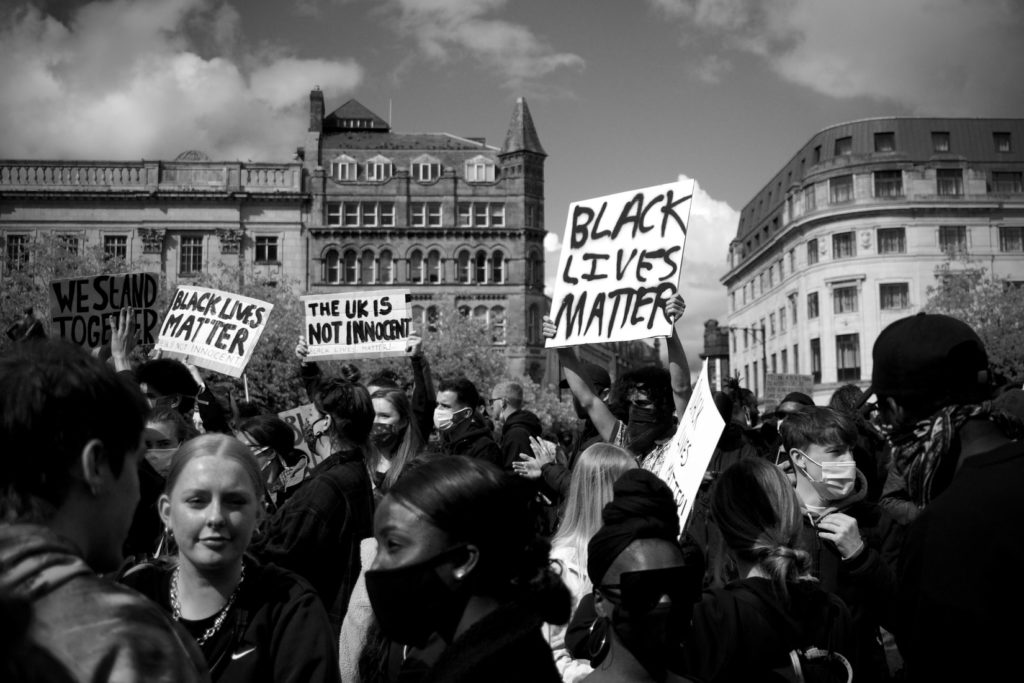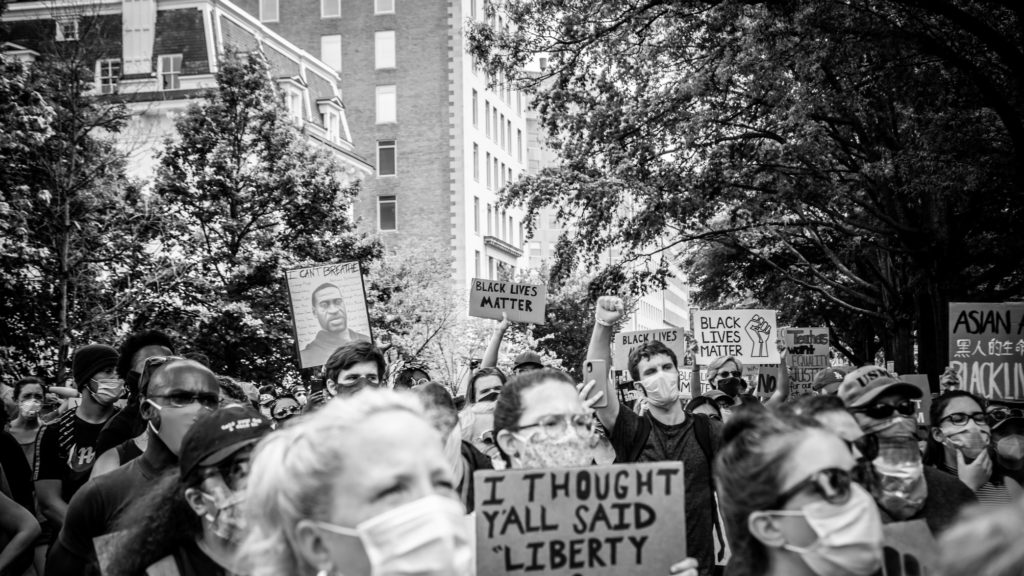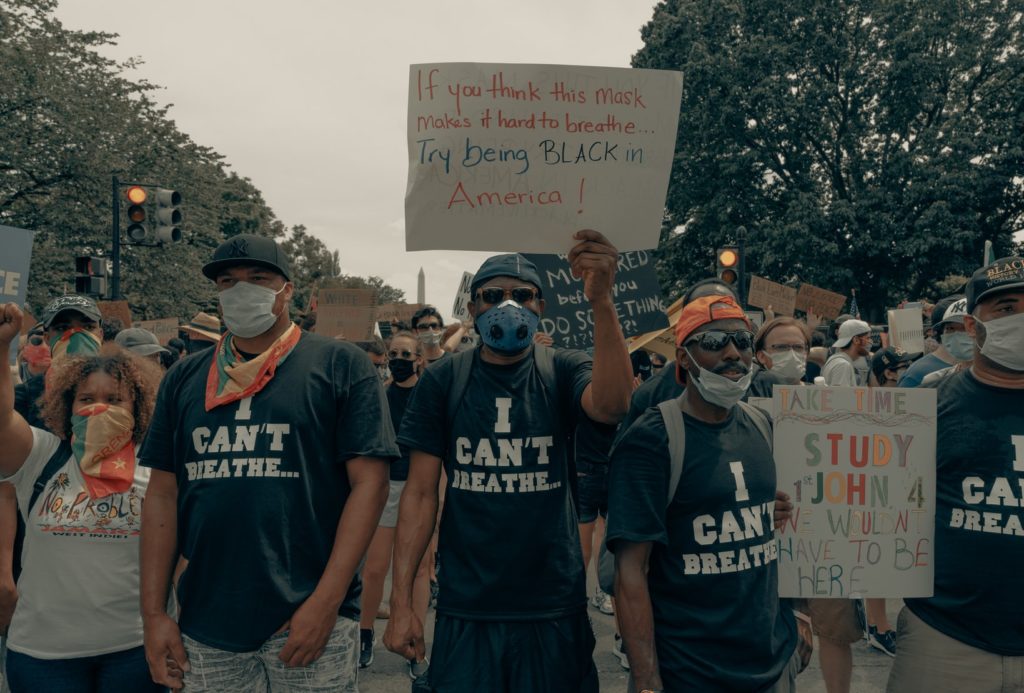The recent killing of George Floyd has triggered a worldwide debate about race and discrimination. The global nature of football means that what happens in the stands often mirrors our society.
“I can’t breathe.” The three words that a helpless George Floyd screamed in vain more than 20 times before he was murdered by a police officer in the United States in broad daylight. The three words that lit a massive fire and sparked a global civil rights movement against racism. The three words that struck such a profound cord with most people, that they risked getting a deadly disease to stand up and march for him, and for the millions of black people who have been victims of systemic racism over the years.
From Asia to South America, people in every continent defied COVID-19 restrictions to march and protest in solidarity, as the Black Lives Matter movement became a rallying cry against racism and social injustice. The majority of the world united in a reckoning and solidarity against the centuries of discrimination, oppression and brutality black people have had to endure.
The sporting world joined the protests against racial injustice, and football too, came together in support of the movement. Bundesliga players Jadon Sancho, Marcus Thuram, Winston McKennie and Achraf Hakimi all led the way by taking a stand during their matches. Several other demonstrations of solidarity followed, as players across the Bundesliga, Premier League and the MLS protested peacefully by taking a knee.
But how might fans have reacted had they not been banned from stadiums due to the coronavirus pandemic. The movement wasn’t without controversy, as a plane with the banner, “White Lives Matter Burnley” flew above the Etihad Stadium in June just moments after Manchester City and Burnley players had taken a knee in support of the Black Lives Movement. Players from MLS teams FC Dallas and Nashville SC were booed by some of the fans who were in the stadium while they kneeled before their game in August.
Christos Kassimeris, who has written three books about racism in football and is a Political Science professor at the European University in Cyprus, believes that the Black Lives Matter protests certainly would have had a more immediate impact with fans in stadiums, but their presence could have triggered more racist incidents.
“Racism in football only slowed down with the outbreak of the coronavirus. Until then, I was getting updates almost daily on my feeds about incidents of racism in various football matches around Europe,” Kassimeris says.
People are showing “direct racism” again
Footballer turned manager Sean Wharton believes that racism has morphed or shape-shifted in recent years. But recent political events have led to an increase in more direct and overt forms of discrimination.
“Over the years, racism has sort of evolved, a bit cuter, indirect racism. It’s a little more subtle, and seen in different ways; by the look, the tone of voice, by not including, by prejudice, by victimisation and marginalisation. Discrimination comes in different forms. But there’s been a move where, obviously with Brexit, and the leader of the free world being able to say what they want, people are changing again with actually showing direct racism, which is hurtful.”
Sean Wharton
Sunil Patel, who works for anti-racism charity Show Racism the Red Card also believes racism seems to have become the norm over the last four or five years, not only in football but also in society. And what happens on the terraces only mirrors the societal issues.
“It goes hand in hand really what’s happening (in everyday lives). Our society seems to go into the grounds and behave the way they would normally, and in fact we’ve actually seen what’s mirrored in society through the work we do,” Patel says. “There has unfortunately been an increase of negative attitudes towards immigration in particular, an increase to have negative attitudes towards certain groups. After the EU referendum on the Brexit vote, the closet racists have seemingly come out of the closet and feel more empowered to basically kind of abuse people and start becoming racists again”
The link between racism on the football stands and that in society can clearly be backed up by hard data.
Before the coronavirus pandemic brought life as we know it to a halt, football was seeing a sharp rise in incidents of racism. Figures released by the Home Office in January revealed that more than 150 football related incidents reported to the police in the United Kingdom last season alone, a rise of more than 50% from one year ago. And these are just the cases that were reported, and that too, only in the United Kingdom. Hundreds of cases go unreported every year, as players at the grassroots level and in women’s football still lack the support that professional male players now get.
The UK Home Office reported last year that hate crimes throughout the country had doubled over the last five years. There were 103,379 hate crimes recorded between 2018 and 2019, with 76% of them being race related. A UK-wide survey conducted by Opinium last year found that 71% of people from ethnic minorities had experienced overt racist discrimination in society in the wake of the Brexit referendum.
UK Prime Minister Boris Johnson compared veiled Muslim women to “letterboxes” in 2018. That led to an incredible 375 per cent rise in Islamophobic incidents, monitoring group Tell Mama reported. Johnson has also used racial slurs like “piccaninnies” and “watermelon smiles” to describe people living in Africa.
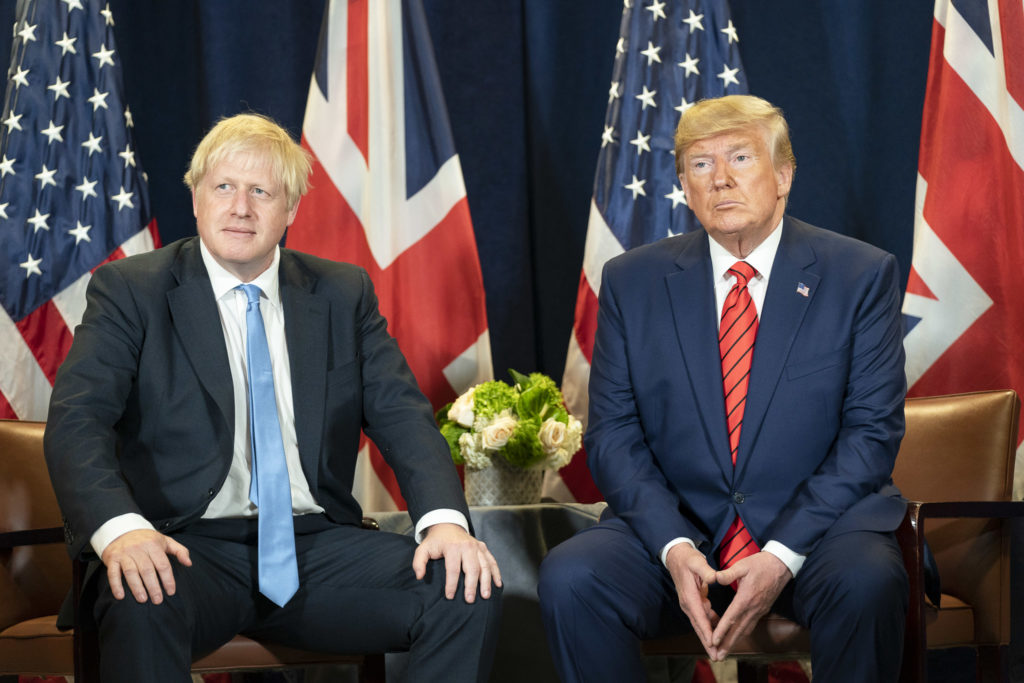
Similarly, counties that hosted Donald Trump presidential rallies in 2016 saw a 226% increase in hate crimes.
Trump has never shied away from using racist, sexist, xenophobic and anti-immigration rhetoric and policies as part of his campaign. He has also been outspoken about his desire for teams to fire players who kneel during the national anthem. His constant race baiting, denunciation of the Black Lives Matter movement, and championing of Confederate symbols among other things have left little doubt about what his views are.
As Wharton pointed out, Boris Johnson and Donald Trump, leaders of two of the most powerful countries of the world, have a history of openly using racist language and making xenophobic remarks. So when their supporters see or hear these remarks, it is likely that they will think that if two of the most influential people in the world can make those comments, why can’t I do the same?
The recent electoral successes of far-right governments across the world has played a big role in legitimising hate and making these racist views more mainstream.
Pavel Klymenko, who works for the Football Against Racism in Europe network says, “The rise of right wing populist parties across Europe has played a role (in the recent rise of racism) and if you project that on football as a reflection of society it is only natural that you know such developments have a reflection in football with fans being more open to saying or chanting things that they previously would not have done.”
Meanwhile, Sean Wharton also adds that while football has a role to play in fighting against racism, racism in the sport won’t stop until it does in our societies. “If we go to the theatre and there’s a racist incident, the theatre wouldn’t be racist. Football plays a part (against racism). But these people (who go to games) could be dentists, doctors, businessmen, policemen. These people who show their racist views quite often have jobs. Its not cheap to go and watch a football match. So most of the people who go to games are professional people.”
Not only adults, but children of colour are also having to experiencing racial abuse at schools on a daily basis. Sunil Patel says, “Unfortunately it is really sad to see that racism is being mirrored even in schools now. Racism has been in schools for many years. But what we have noticed is even more younger children exhibit racist attitudes, even 5-6 year old children which we haven’t seen prior to maybe 2015.”
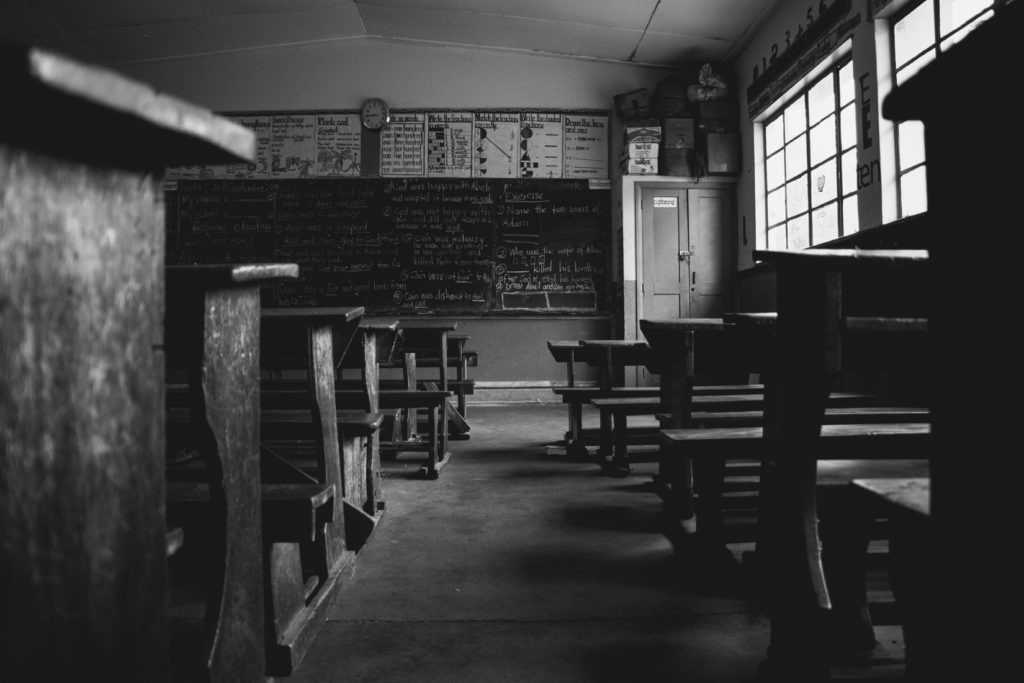
So people of colour now not only have to face the challenges of police brutality, lack of opportunities in everyday life, racial pay gaps, profiling and health care bias, but they are also prone to racial abuse in schools.
At first glance, it’s quite shocking to think that kids are actually having to experience racial abuse. But then again, when schools around the world sanitise the realities of their history and only tell it from their perspectives, it is no surprise that kids don’t get the education they need to prevent them from making racist comments.
Systemic racism is rife, even in some of the most developed and diverse countries in the world. Despite attempts to whitewash and deny these realities, the facts are glaring. The recent civil rights protests have generated great momentum, but there has been no sustained effort to rid it from society. The recent deaths of George Floyd, Breonna Taylor and Ahmaud Arbery clearly underline the continuing injustices against people of colour even in 2020. And unless serious action is taken soon, people of colour will continue to suffer similar fates.
Racism is an epidemic that is widely spread in all forms of society. People are no longer afraid of shouting their racist, xenophobic and fascist views, not just from the football stands, but also in the streets. Hate speech is often masqueraded as nationalistic discourse, as a lot of people continue to live in denial of their abhorrent views. And the huge disconnect between those in charge and those suffering from racist abuse further makes it very difficult to bring about any real change.
There is no doubt that football needs to take care of its racism problem and do a better job of protecting those who work so hard for our entertainment. Football’s popularity and influence means that it has the power to play a progressive and meaningful role in the fight against racism. If everyone in the sport unites to fight for the cause, there is a great chance that they can force reform and make a real difference.
But as Sean Wharton says, “It’s very much about society, about the people who attend the football arenas to vent their racist views.“ The recent Black Lives Matter protest have offered a glimmer of hope in the fight against social justice. But unless there is an actual reform to the systems that have allowed discrimination to sustain for so long, this pandemic of racism will not stop. And if people in our society are allowed to freely spout their racist views, football stands no chance of winning the battle against racism.
